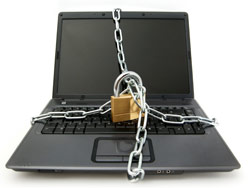According to a survey conducted by Sophos, company that specializes in providing enterprise security software solutions, about one third of all users utilize the same password over and over again – what I mean by that is that they use the same password for each of their accounts (email, instant messaging, social networking, and so on). This is an extremely dangerous practice as having one account broken into automatically puts all other accounts n jeopardy. Not to mention the fact that some people are willing to set up accounts on some pretty untrustworthy sites, and when doing so they provide the user name and password they use with other online services.
“Very few computer users seem to have woken up to the risks of using weak passwords and the same ones for every site they visit. With social networking and other internet accounts now even more popular, there's plenty on offer for hackers and by using the same password to access Facebook, Amazon and your online bank account, you're making it much easier for them. Once one password has been compromised, it's only a matter of time before the fraudsters will be able to gain access to your other accounts and steal information for financial gain,” explains Senior Technology Consultant and Sophos press contact for the UK and worldwide, Graham Cluley.
The study that Sophos conducted revealed these facts:
- 33% of all respondents said they use the same password for various accounts.
- 48% said they rarely use different passwords.
- 19% said they never use the same password for different accounts.
It must be noted that a total of 676 people responded to Sophos’ online survey.
The problem is even worse if you do not choose a proper password – as a rule of thumb, do not go with something as simple as “potato”, or “Monday”, as simple words are vulnerable to dictionary attacks. What you should do is use a phrase, sprinkled with some numbers or characters. Even a password as simple as potato can gain an extra level of protection if you take the time to obfuscate it; instead of “potato”, why not try something like “P()7@t0”.

“Very few computer users seem to have woken up to the risks of using weak passwords and the same ones for every site they visit. With social networking and other internet accounts now even more popular, there's plenty on offer for hackers and by using the same password to access Facebook, Amazon and your online bank account, you're making it much easier for them. Once one password has been compromised, it's only a matter of time before the fraudsters will be able to gain access to your other accounts and steal information for financial gain,” explains Senior Technology Consultant and Sophos press contact for the UK and worldwide, Graham Cluley.
The study that Sophos conducted revealed these facts:
- 33% of all respondents said they use the same password for various accounts.
- 48% said they rarely use different passwords.
- 19% said they never use the same password for different accounts.
It must be noted that a total of 676 people responded to Sophos’ online survey.
The problem is even worse if you do not choose a proper password – as a rule of thumb, do not go with something as simple as “potato”, or “Monday”, as simple words are vulnerable to dictionary attacks. What you should do is use a phrase, sprinkled with some numbers or characters. Even a password as simple as potato can gain an extra level of protection if you take the time to obfuscate it; instead of “potato”, why not try something like “P()7@t0”.


























